Pennsylvania African-American War Monument
Posted By Norman Gasbarro on January 7, 2011
Along the Franklin Parkway in Philadelphia, just across from the Franklin Institute on 20th Street, is the monument erected by the Commonwealth of Pennsylvania to honor her “Colored Soldiers.”
The monument plaque reads:
To commemorate the heroism and sacrifice of all colored soldiers who served in the various wars engaged in by the United States of America that a lasting record shall be made of their unselfish devotion to duty as an inspiration to future generations this monument is dedicated May 30, 1934.
The various wars in which the United States fought up to 1934 are listed on the monument sides on bronze shields. The Civil War is so noted on the same plaque as is the American Revolution and the Indian Wars.
From the Civil War to the Korean War, African-American soldiers fought in segregated units. It was not until the Korean War that Pres. Harry S. Truman integrated the armed forces.
Not generally known is the fact that some African-Americans served in state army regiments units during the Civil War prior to the establishment of the “United States Colored Troops (USCT),” which were segregated units commanded by white officers. While it can be generally assumed that anyone under the rank of sergeant who served in a “colored” regiment was an African-American, it can’t be assumed that all who served in Pennsylvania regiments were white.
Thus far, seven possible African-Americans from the Lykens Valley area have been identified as Civil War soldiers. More information is needed on each of them and as it is discovered, more complete biographies will be posted here. For now, some brief information can be given:
Samuel Bartlett (dates not known) was living in Weishample, Hegins Township, Schuylkill County, in 1890. He reported service in the 43rd United States Colored Troops as a Private from 3 April 1865 to the 23 May 1865.
Edward Crabb (1832-1886) born in Gratz and served in the 36th Pennsylvania Infantry (Emergency of 1863), Company C, as a Private. He served from 4 July 1863 to 11 August 1863. He is buried in the Gratz Union Cemetery.
John Peter Crabb (1848-?) born in Gratz, and served in the 36th Pennsylvania Infantry (Emergency of 1863), Company C, as a Private, from 4 July 1863 to 11 August 1863, and then in the 24th United States Infantry Colored Troops, enlisting on 8 February 1865 as a Private, and rising to the rank of Corporal before discharge on 1 October 1865. After the war, John Peter moved to Harrisburg.
William Crabb (?-1864) served in the 32nd United States Colored Troops. His pension record indicates be died of typhoid fever while on leave. He is buried in the Jersey Shore Cemetery in Lycoming County, Pennsylvania.
Elijah Enty (about 1830-?) was found in the 1890 Veterans census for Hegins, Schuylkill County. He enlisted in the 43rd United States Colored Troops on 31 March 1864 as a Private and before completion of duty on 12 June 1865, he rose to the rank of Sergeant. He reported to the 1890 census taker that he had been “shot through the left hand” during his service.
Elias Thomas (1835-1919) was a member of the 45th United States Colored Troops, Company D. More information is needed to determine whether this is the same Elias Thomas who lived in the Lykens Valley.
All of the above would be recognized as honored by the Pennsylvania African-American War Monument.
Additional pictures of the monument are below:
Additional information is sought on any of the above-named soldiers, or any others from the Lykens Valley area who would qualify by their Civil War service to be recognized by the Pennsylvania African-American War Monument.
 ;
;
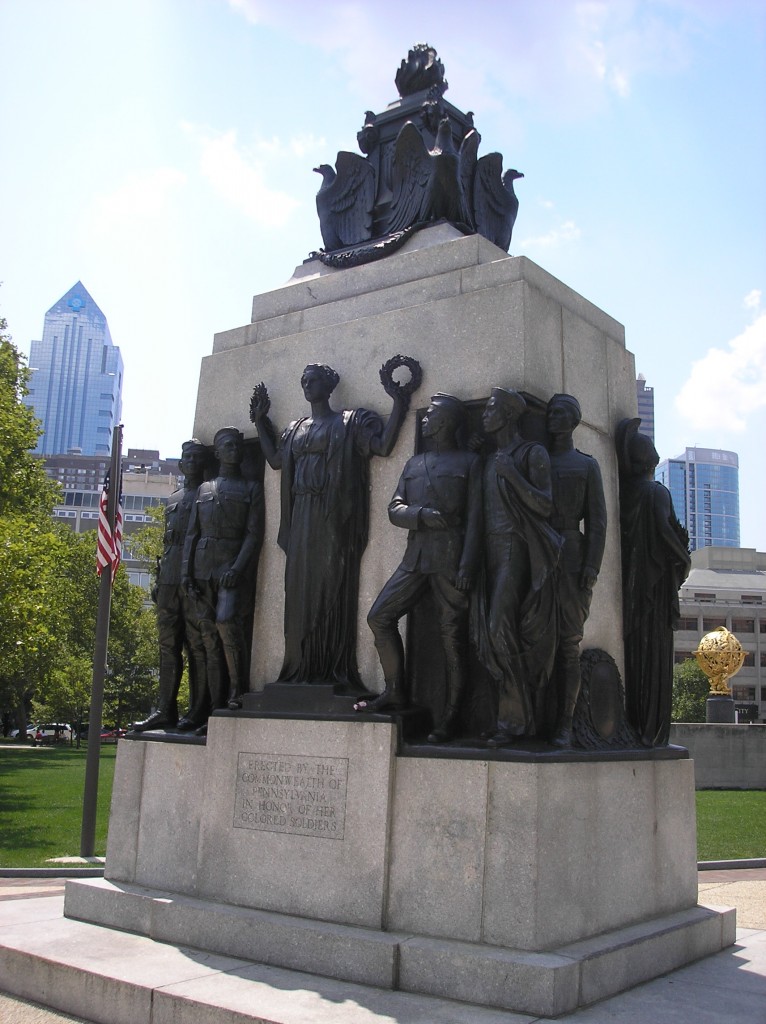
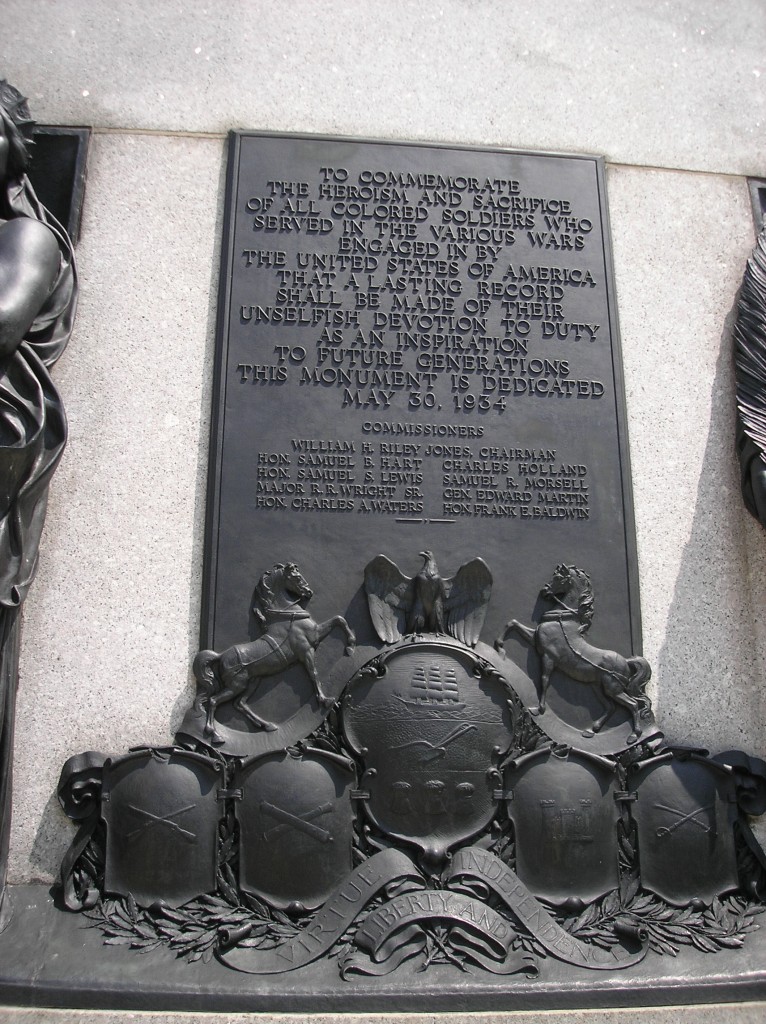
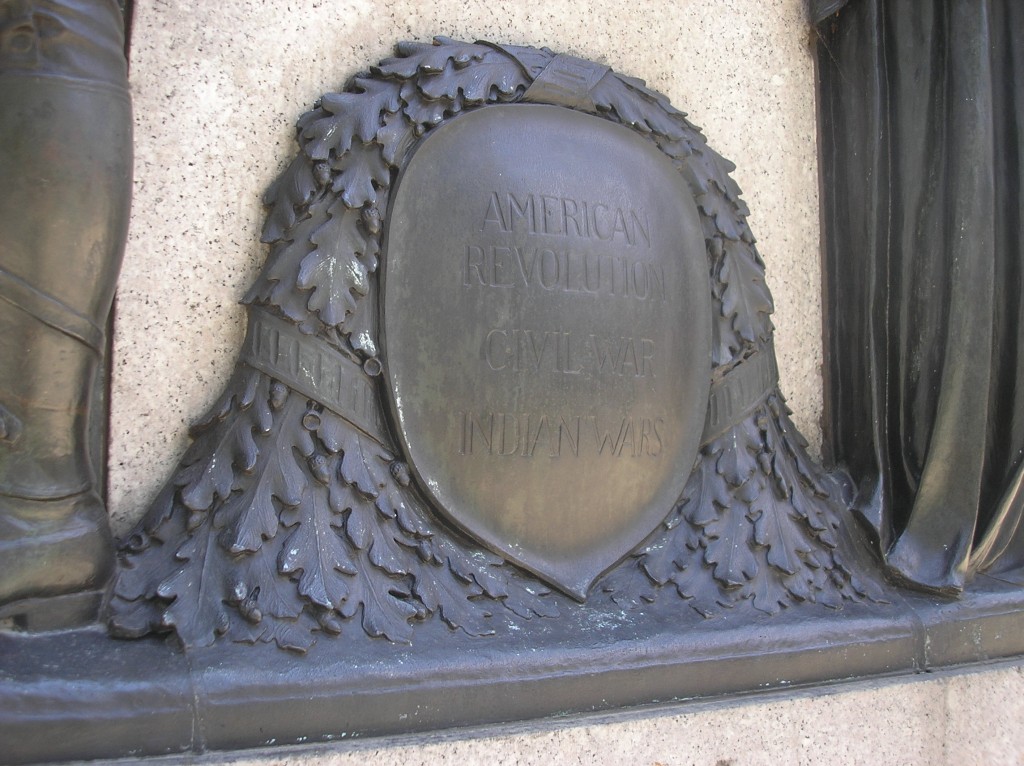
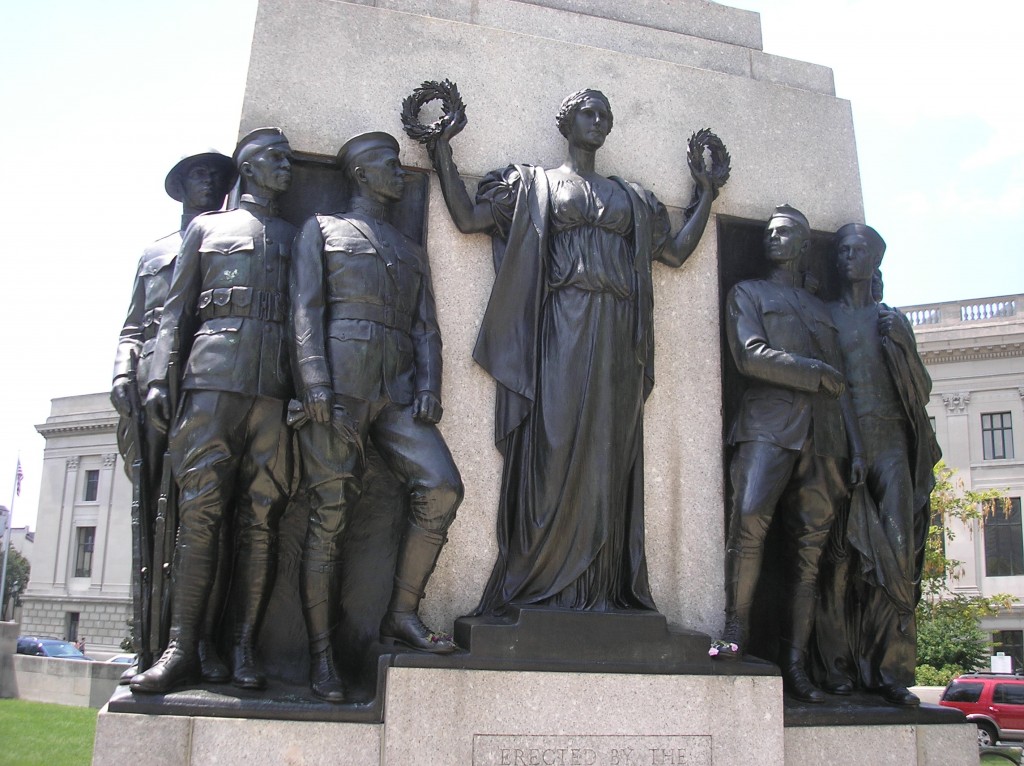
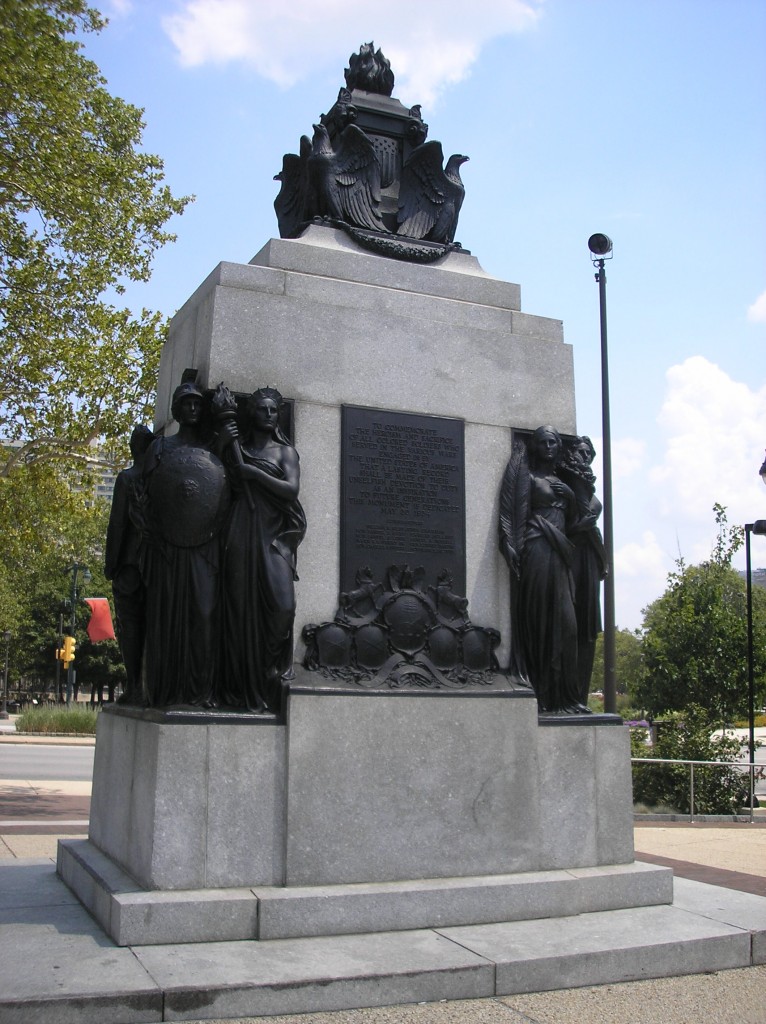


Excellent article. Thank you for the history.
This is a great article. Fascinating stuff.
I am the great grand daughter of Samuel Bartlett. Through Ancestry.com I found he was born in or around 1843 and he died in 1915. If you should do any further research on him I would like to help in any way I can. I am trying to research his life before the civil war but have reached a dead end. Thank you for all you’ve done for without your research I would not know anything about my African heritage.